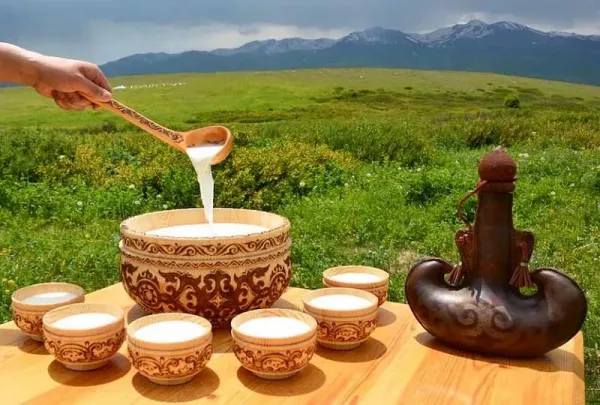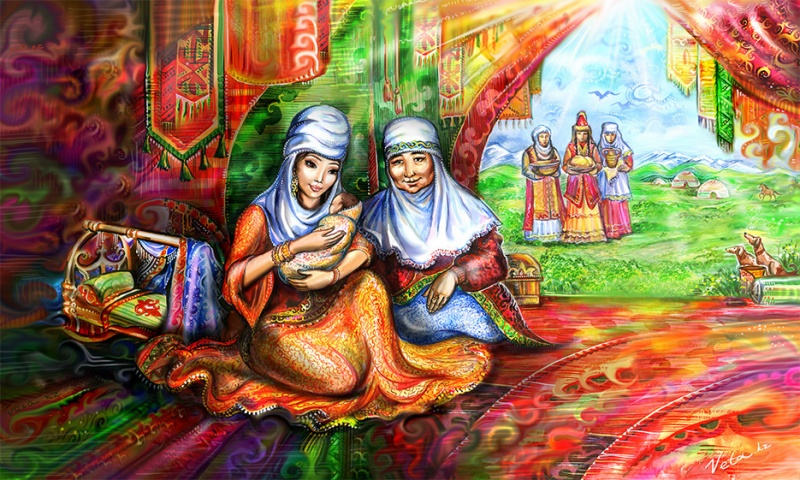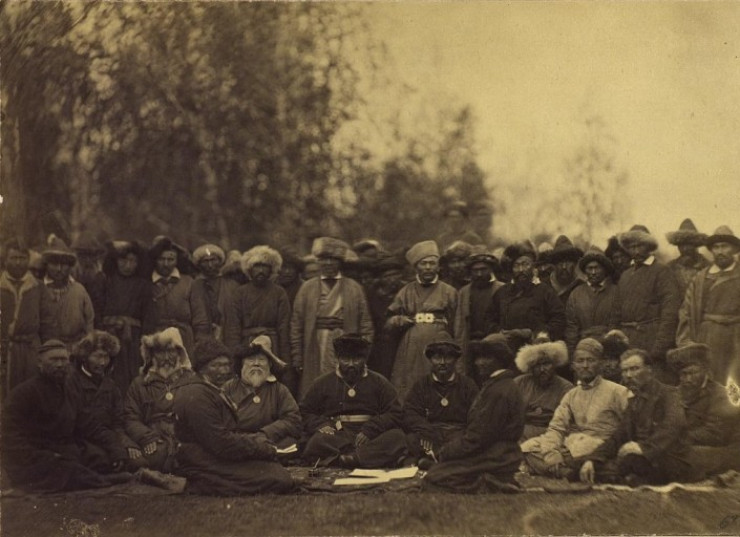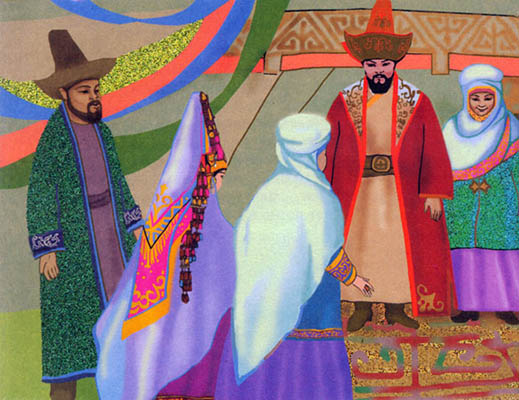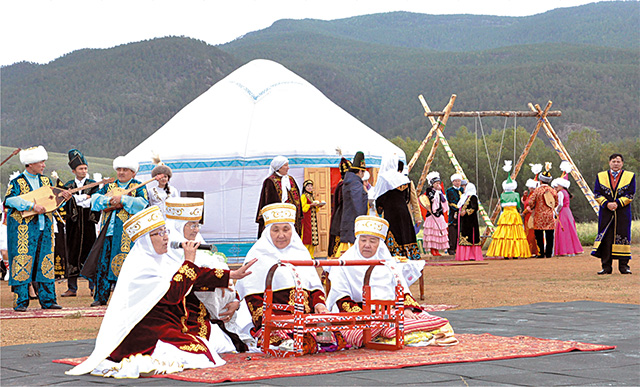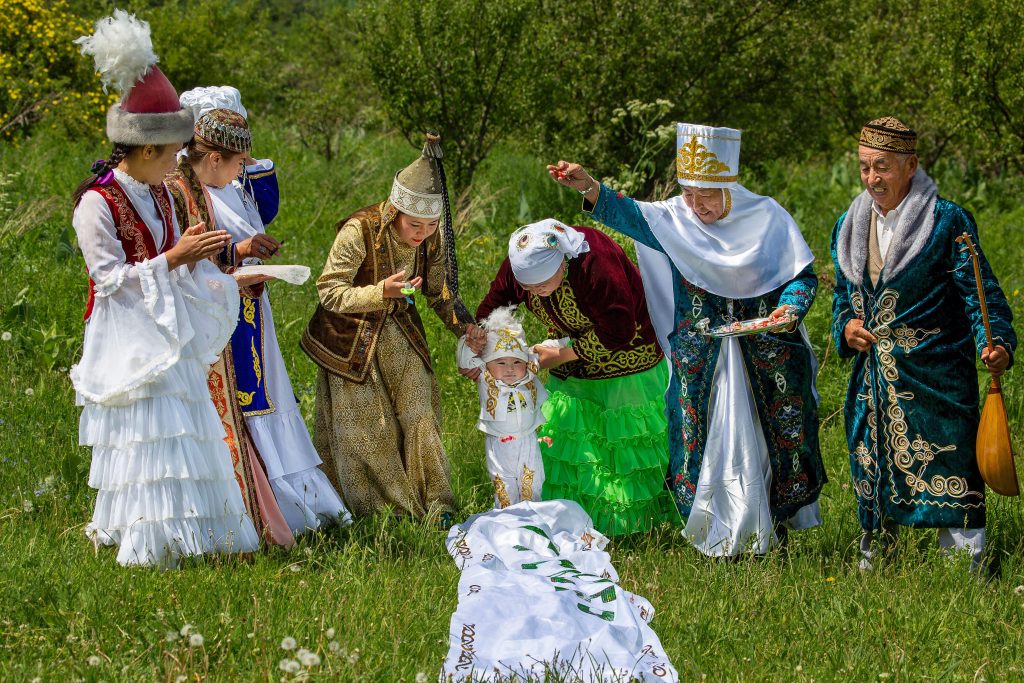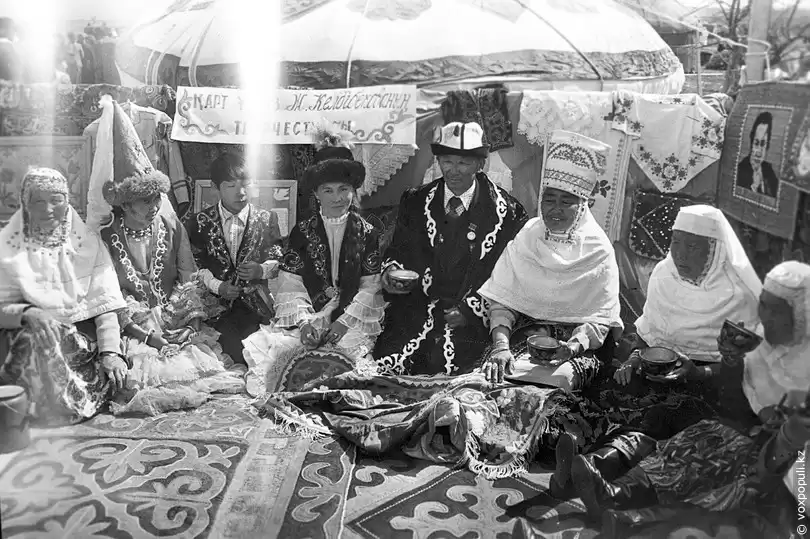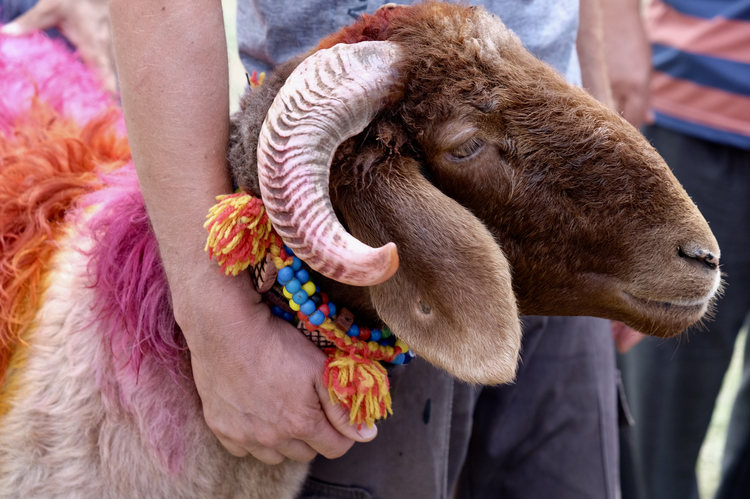Kazakh Traditions
The Rite of Passage –
At birth, a child is celebrated with the shildehana, a ceremony to protect the newborn from evil spirits.
Kazakh Festivals – A Time for Unity and Joy
Festivals are the heart of Kazakh community life, where traditions come alive in celebration. The most important festival is Nauryz, the Kazakh New Year, celebrated on March 21st, marking the spring equinox.
During Nauryz, families come together to share nauryz kozhe (a special dish made of seven ingredients symbolizing abundance), clean their homes, and give thanks for the new year’s blessings. The festival includes music, games, and dances that bring the community closer.
Another important tradition is the Tusau Kesu, a ceremony celebrating a child’s first steps. Relatives gather to bless the child, cutting the ropes that have symbolically bound their feet, encouraging them to walk freely into the future.
Nauryz – The New Year Celebration
Nauryz is the most anticipated festival in Kazakhstan, a time to celebrate renewal, life, and prosperity. Marking the spring equinox, this festival has deep roots in Central Asian culture, and for Kazakhs, it symbolizes the beginning of a new year.
During Nauryz, families prepare traditional dishes, most notably nauryz kozhe, a soup made from seven ingredients symbolizing different aspects of life such as health, wealth, and happiness. The streets fill with people singing traditional songs, performing dances, and engaging in games like kokpar (a horseback game). Nauryz is more than a festival—it’s a time of healing, forgiveness, and unity.
Eid al-Adha – A Spiritual Tradition
Islam is an integral part of Kazakh culture, and one of the most significant religious festivals is Eid al-Adha, also known as Kurban Ait in Kazakhstan. This festival commemorates the willingness of Ibrahim (Abraham) to sacrifice his son as an act of obedience to God. In modern Kazakhstan, it’s a time for families to come together, share meals, and distribute food to the less fortunate.

